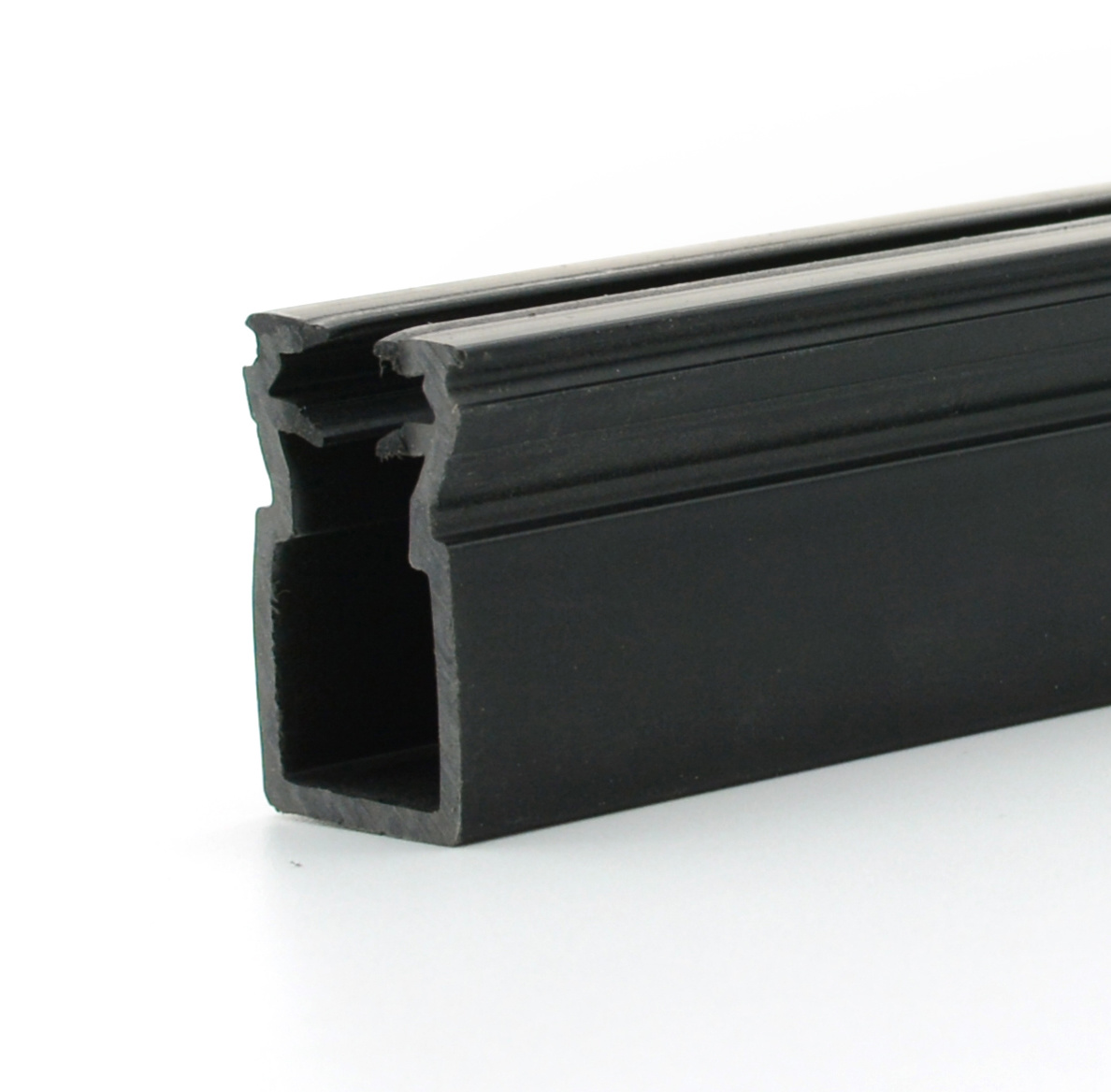
Phone Number :
10 29, 2024
In today’s world, sustainability is at the forefront of both consumer preferences and industrial innovation. Many companies, including Jiepeng, are exploring eco-friendly options for their products to meet environmental demands. Custom plastic profiles are versatile and widely used across industries, but questions remain about their recyclability and potential for eco-friendly materials. Here’s a closer look at how custom plastic profiles can align with sustainable practices.

Can Custom Plastic Profiles Be Recycled?
Yes, custom plastic profiles can be recycled, depending on the type of plastic used. Here’s a breakdown of the recyclability of common plastics:
1. PVC (Polyvinyl Chloride) Profiles
Recyclability: PVC is one of the most commonly used plastics for profiles and can be recycled. It can be broken down into smaller particles and reprocessed for various applications, reducing the need for virgin materials.
Benefits: Recycling PVC reduces waste and minimizes environmental impact. By choosing recycled PVC, industries can significantly reduce their carbon footprint.
2. HDPE (High-Density Polyethylene) Profiles
Recyclability: HDPE is highly recyclable and is often used in various applications, from pipes to profiles. This plastic can be melted down and reformed multiple times, retaining its quality and durability.
Benefits: HDPE is durable, resistant to moisture, and recyclable, making it a sustainable choice for custom profiles used in demanding applications.
3. Polypropylene (PP) Profiles
Recyclability: Polypropylene is another recyclable plastic, widely used in manufacturing custom profiles. It is heat-resistant and can be reprocessed efficiently without losing its properties.
Benefits: Recycling PP reduces the need for new material, promoting a circular economy by keeping plastics in use longer.
4. ABS (Acrylonitrile Butadiene Styrene) Profiles
Recyclability: ABS can be recycled, though it’s slightly more challenging to process than other plastics. However, recycled ABS is still usable in many non-load-bearing applications.
Benefits: Recycling ABS helps reduce industrial waste and makes it a valuable choice for custom profiles that don’t require heavy-duty performance.
Eco-Friendly Materials for Custom Plastic Profiles
In addition to traditional plastics, eco-friendly alternatives are becoming more accessible and beneficial for custom plastic profiles. Here are some options:
1. Biodegradable Plastics
Features: Biodegradable plastics are designed to decompose more quickly when exposed to natural elements. These plastics break down into non-toxic components, reducing waste in landfills.
Usage: Biodegradable options work well in industries with lower durability requirements, such as packaging, consumer goods, and agriculture.
2. Bio-Based Plastics
Features: Bio-based plastics, derived from renewable resources such as cornstarch or sugarcane, offer a sustainable alternative to fossil-fuel-based plastics.
Usage: These materials are suitable for industries focusing on environmental impact. Bio-based custom profiles are ideal for non-structural applications, contributing to reduced emissions and dependence on traditional plastics.
3. Recycled Plastics
Features: Using recycled plastic to create new custom profiles is a practical and cost-effective way to promote sustainability. Recycled materials can be used to produce durable profiles without compromising quality.
Usage: Recycled plastics are widely used in construction, automotive, and consumer goods, reducing the need for virgin material and extending the life cycle of existing plastics.
Benefits of Eco-Friendly Custom Plastic Profiles
Choosing recyclable or eco-friendly materials for custom plastic profiles brings significant environmental and economic benefits, including:
Waste Reduction: Recyclable and biodegradable profiles help reduce waste, particularly in industries with high turnover or disposable products.
Lower Carbon Footprint: Using recycled or bio-based plastics reduces greenhouse gas emissions associated with plastic production.
Resource Conservation: Choosing sustainable materials helps conserve natural resources and reduces reliance on petroleum-based plastics.
How Jiepeng Supports Sustainable Plastic Profiles
At Jiepeng, we are committed to providing eco-conscious solutions for custom plastic profiles. We prioritize recycled and sustainable materials to meet the growing demand for environmentally responsible products. Our team works closely with clients to understand their sustainability goals, offering options for recyclable and biodegradable plastics that align with industry standards.
Conclusion
Custom plastic profiles can indeed be recycled or produced from eco-friendly materials, making them a sustainable choice across various industries. By choosing recyclable or bio-based plastics, manufacturers and consumers can contribute to a greener future. Jiepeng is dedicated to supporting these efforts by providing high-quality, sustainable plastic profiles for a variety of applications. Visit Jiepeng’s website to learn more about our eco-friendly options and commitment to sustainable manufacturing practices.